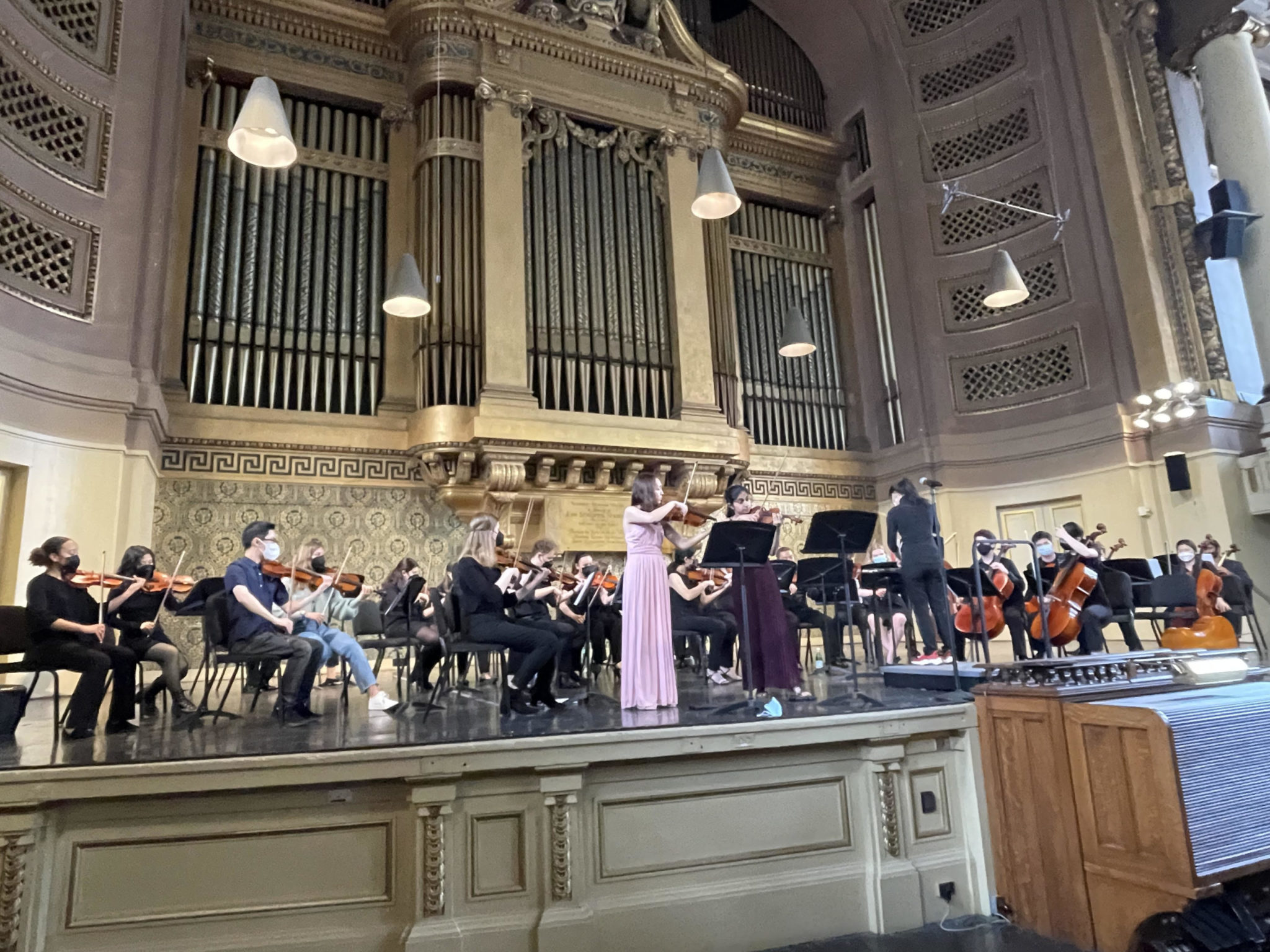The Death and Life of Berkeley College Orchestra: Part 2
The Berkeley College Orchestra staged a concert, A Voyage Through Sound, this Saturday in Woolsey Hall, their second concert with the new first-year and sophomore members.

Courtesy of the Berkeley College Orchestra
In the spirit of Easter and resurrection, the Berkeley College Orchestra staged the second part of their “comeback tour” with “A Voyage Through Sound” concert on April 16 in Woolsey Hall, playing a selection of notable classical pieces.
The Berkeley College Orchestra is the oldest student-run orchestra at Yale and plays a wide variety of classical music, from lesser-known pieces by composers like Leoš Janáček to better-known ones from Rachmaninoff and Beethoven. During the pandemic, membership of the orchestra declined to only three students. Yet over the last academic year, the orchestra bounced back stronger than ever to over 70 members. The group is composed mostly of undergraduate students, but also includes some faculty members and graduate students, such as professor Lin Zhong from the computer science department playing viola, and the Head of Berkeley College, David Evans, on double bass.
“Pretty much the entire orchestra are new recruits,” said Kincaid MacDonald ’23, one of the presidents of the Berkeley College Orchestra. “We lost all of our institutional knowledge, and it seemed like there was a serious possibility that the Berkeley student orchestra wouldn’t make it, but it’s really come back and has been stronger than it has been in years.”
Originally, every residential college had its own college orchestra, but these groups slowly dissipated as students lost interest in participating.
MacDonald said that while the recent increase in membership is partially due to an aggressive recruitment strategy launched this academic year, it is also due to a vigorous response from the first-year and sophomore classes, who signed up in droves.
“It’s also a much more intimate group than it has been in the past,” MacDonald said. “When the semester started, we couldn’t rehearse in full groups, so we had very small chamber groups come together, maybe nine musicians in total, and that has formed stronger bonds in the group.”
Due to the group’s intimacy, they have had fewer issues with absences than they had in the past, with most new recruits coming to all the practices.
“There’s so much musical talent at Yale, there has to be more than one orchestra,” MacDonald added. “Outsized talent can not just have a single group for that talent to be pooled, and BCO is trying to fulfill the niche.”
Although there were concerns that after a successful debut concert last semester there would be less interest this semester, so far the momentum seems to still be maintained.
“A lot of it has been choosing things that are fun for people to play,” MacDonald explained. “I’m a cellist and very often, the cello music that directors select is dreadfully boring, but BCO has countered that by intentionally choosing a repertoire and also having a fast enough pace of concerts that we don’t get bored with what we have, and there’s something for everyone.”
According to MacDonald, the purpose of the orchestra is to form a “democracy of music” where every instrument has an equal voice. Since it is a student-run orchestra, the orchestra aims to promote having fun with music over virtuosic playing.
“I enjoyed it thoroughly, they did a fantastic job,” said Karen Storz, mother of orchestra member Liam Barthelmy ’25. “My favorite piece was the last piece they played, the Sinfonia Concertante.” Sinfonia Concertante for Violin, Viola and Orchestra, which was composed by Mozart in 1779, was the last piece that the orchestra performed.
The Berkeley College Orchestra’s mission of fun reached audiences, as even listeners with no musical background expressed being captivated by the performance.
“I thought it was awesome. I don’t know much about music but it was a really fun time,” Eden Gorevoy ’24 concurred.
Berkeley College Orchestra was founded in 1976.







